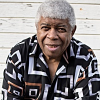Home » Jazz Articles » Marion Brown
Jazz Articles about Marion Brown
Marion Brown: Three For Shepp To Gesprachsfetzen Revisited

by Alberto Bazzurro
Tre brani di Marion Brown e altrettanti di Archie Shepp compongono il primo dei due album riuniti, come sempre meritoriamente, in questo CD, provenendo da quello che rappresenta il debutto dell'altosassofonista georgiano su Impulse!, inciso il 1° dicembre 1966 (dopo un paio di ESP e un Fontana) e pubblicato l'anno seguente. La stessa Impulse!, come già aveva fatto con lo stesso Shepp riferendolo a Coltrane per Four for Trane, ricicla per l'occasione la stessa formula riferendo Brown al collega di ...
Continue ReadingMarion Brown: Three For Shepp To Gesprachsfetzen Revisited

by Mark Corroto
It's not too late to catch up with alto saxophonist and composer Marion Brown. Thanks to this excellent reissue and remaster series, you can hear the innovative recordings from this master musician. This release follows his 1965/66 discs Capricorn Moon To Juba Lee Revisited (ezz-thetics, 2019) and 1966/67 discs Why Not? Porto Novo! Revisited (ezz-thetics, 2020). Chris May's excellent liner notes posit an answer to Brown's relative obscurity. He essentially lays the blame on marketing. Record labels and ...
Continue ReadingMarion Brown: Three For Shepp To Gesprachsfetzen Revisited

by Chris May
"It is often those we hear the least that we should listen to the most." So wrote the Guadeloupean pianist Jonathan Jurion on the release of his album Le Temps Fou: The Music Of Marion Brown (Komos, 2019). Just why Marion Brown has become such a rarely acknowledged figure is unclear. He possessed all the qualifications needed to go large plus a few extras for good measure. He was a good-looking man. He dressed well (telling Dave ...
Continue ReadingArchie Shepp: Fire Music To Mama Too Tight Revisited

by Chris May
In 2022, it is widely accepted that, when free jazz (aka the New Thing) was in its ascent in New York in the 1960s, there was, despite superficial appearances, no fundamental incompatibility between it and the historical jazz tradition. More contentiously, revisionist historians are now suggesting that there was no real conflict between New Thing and changes-based or modal-based musicians either. They should try telling that to Archie Shepp. In autumn 1966, during the Miles Davis quintet's ...
Continue ReadingMarion Brown: Why Not? Porto Novo! Revisited

by Chris May
Alto saxophonist Marion Brown was part of the band on John Coltrane's Ascension (Impulse, 1965), though you would not guess it from Why Not (ESP, 1968). Like fellow Ascension alumnus, tenor saxophonist Pharoah Sanders' contemporaneous Tauhid (Impulse, 1967), Brown's album inhabited an intensely melodic section of the 1960s' New Thing. As were Sanders' own-name releases from 1967 onwards, Brown's work was deeply lyrical and embraced South Asian, Maghrebi and West African instruments and constructs. As bandleaders, the two ...
Continue ReadingMarion Brown: Capricorn Moon To Juba Lee Revisited

by Chris May
The release of this album is an event momentous enough to warrant repeating the preamble to the previously published review of Albert Ayler's Quartets 1964: Spirits To Ghosts Revisited.... Before considering the music on this disc, something else has to be celebrated--the resurrection of Werner X. Uehlinger's Hat Hut label (see past profiles). Founded in 1975, the Swiss-based company's hatOLOGY series championed European and American outer-limits jazz, producing a large catalogue of newly recorded and legacy material. Sadly, ...
Continue ReadingMarion Brown: The Freshness after the Rain

by Nic Jones
[Editor's Note: For the inaugural installment of his new column, in which he monkeys around on the margins of jazz and improvised music, Nic Jones takes a look at the often overlooked and undervalued multi-instrumentalist, Marion Brown.]Reed player and percussionist Marion Brown's music is a singular thing. Through his associations in the 1960s--not the least of these being as a sideman on John Coltrane's Ascension (Impulse!, 1965)--he might, in many peoples' minds, be associated with the New Thing ...
Continue Reading





















